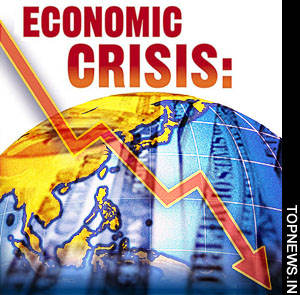UN climate talks caught between economic crisis, Obama hopes
 Vienna - When UN talks on a new climate-saving pact resume in Poland next week, the global economic crisis will loom large.
Vienna - When UN talks on a new climate-saving pact resume in Poland next week, the global economic crisis will loom large.
Resistance to the cost of fighting global warming has grown, notably in Europe, which has traditionally set the pace in international efforts to cut fossil fuel use.
Now, countries like Italy and Poland say ambitious EU plans are too expensive.
For optimism, negotiators from nearly 200 countries are looking to the United States, the world's biggest greenhouse gas polluter: President-elect Barack Obama has pledged to re-engage his country "vigorously" in global climate talks.
UN officials have welcomed Obama, who said last week he will "help lead the world toward a new era of global cooperation on climate change." In contrast, President George W Bush rejected binding emissions cuts as bad for the US economy.
At the December 1-12 talks in Poznan, Poland, delegates will work on ways for rich countries to offer "green" technology in return for commitments by emerging economies to curb fossil-fuel pollution.
Unlocking that puzzle is critical to reaching a new global warming accord at a December 2009 climate summit in Copenhagen, Denmark.
"Scientists tell us that we must stabilize global emissions within the next 10 to 15 years or we will reach a tipping point, and then any remedy will become very, very expensive," Danish Climate and Energy Minister Connie Hedegaard said.
Problem is, some European countries are already worried about the cost of cleaner energy. Those concerns set off a revolt by seven ex- communist nations and Italy last month, baring EU disunity before the Poznan talks.
European Union leaders agreed last year to cut carbon dioxide emissions by 20 per cent from 1990 levels by 2020. But the eight countries, which could veto a climate package at the EU's December 11-12 summit, balked at their individual targets under the plan.
Large parts of eastern Europe burn coal for electricity and governments say they are not getting enough credit for past emissions reductions when they shut down communist-era industries.
"We can't fight for the climate at the expense of our competitiveness," Czech Prime Minister Mirek Topolanek said recently. "That is especially valid at a time of global financial crisis."
The looming global recession adds other complications. While factories and power plants tend to blast out less pollution in a slump, lower oil prices cut the incentive for conservation.
"It's very clear ... that faced with an economic slowdown it's very difficult to take on expensive climate change targets as well," said Yvo de Boer, head of the UN agency that sponsors climate talks, known as the UN Framework Convention on Climate Change.
Negotiators at Poznan will work off a common draft accord for the first time since starting a two-year drive to replace the Kyoto Protocol, which limits greenhouse-gas emissions for 36 rich nations through 2012.
The United States never joined Kyoto, and Obama has no plans to attend the talks in Poland.
But as the world waits for Obama to take over, his November 18 remarks were a powerful signal that he intends to help shape the next global warming deal.
Obama has pledged to promote clean energy technology, set up national trading in pollution permits and cut US emissions 80 per cent below 1990 levels by 2050.
In UN talks, US engagement in channelling green technology and finance to poorer nations will be crucial to getting big emerging economies like China and India aboard for binding cuts in emissions.
"The transfer of technology to developing countries on favourable conditions is the obligation of developed countries," Chinese national development minister Zhang Ping said in November.
While Obama has promised sweeping action on global warming, settling the details and getting Congress behind the effort will take time.
Some analysts say the US is unlikely to be ready to agree to a specific emission target when governments meet in Copenhagen.
"There is some perhaps exaggerated expectation that the US will suddenly arrive and miraculously make an agreement happen," said Reid Detchon, a climate expert at the Washington-based United Nations Foundation think tank. "It's still a very difficult negotiation." (dpa)